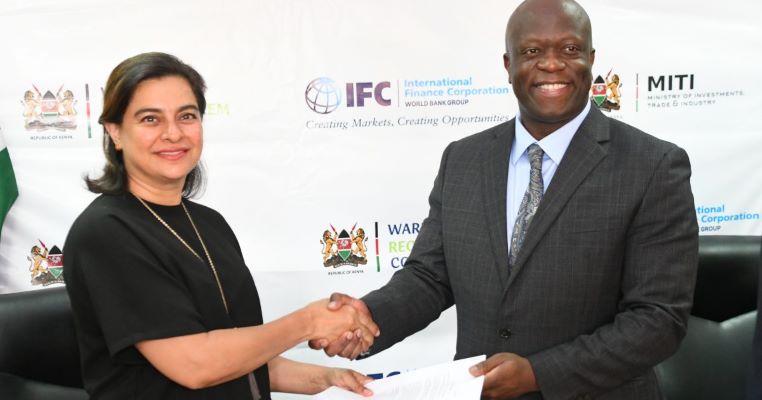
Small-scale grain farmers in Kenya may soon experience a significant reduction in post-harvest losses following a partnership between the International Finance Corporation (IFC) and the Trade Ministry. The partnership seeks to boost the value of produce through a revamped warehouse receipt system that will allow growers to deposit their products in certified warehouses and receive a receipt which can also help them to access credit.
The Ksh306m investment plan partnership is expected to bring an end to post-harvest losses and help farmers get better storage facilities for their produce. According to Alfred K’Ombudo, the principal secretary at the Ministry of Trade, the plan will improve food security, enhance market predictability and pricing, and boost local and regional trade for farmers.
IFC, a member of the World Bank Group, will provide technical assistance, help develop administrative procedures, service level agreements, and standard operating procedures to govern the Warehouse Receipt System Council (WRSC). Amena Arif, IFC’s country manager for Kenya, notes that farmers will be granted better storage facilities, allowing them to fetch fair prices and access credit for growth.
Post-harvest losses have been a significant issue for grain farmers in Kenya. A food situation assessment carried out in 2017 showed that maize losses, for instance, could be quite substantial. The country produced 37 million bags in 2017, of which 12% is estimated to have been lost post-harvest, translating to about 4.5 million bags. Generally, 20% of cereals, legumes, and pulses harvested in Kenya are lost before they even hit the market.
This initiative is expected to result in the growth of agro-processing and value addition industries, as agro-processors will have access to consistent quality and quantity commodities that will ensure effective utilization of their processing capacities. Additionally, the project will be looking to counter post-harvest losses in maize production by about 10%, which will boost the government’s initiative to improve maize production through the fertilizer subsidy program.
In conclusion, the investment plan partnership between the International Finance Corporation (IFC) and the Trade Ministry will have a positive impact on small-scale grain farmers in Kenya. The partnership will boost the value of produce and enhance market predictability and pricing, which will lead to increased local and regional trade for farmers. With this initiative, post-harvest losses could soon become a thing of the past, and farmers will be able to get better storage facilities and access credit for growth.


















